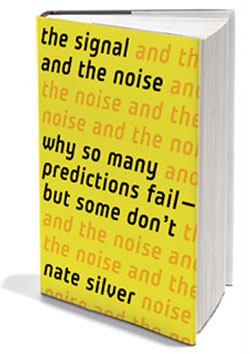The expectation of perfection is an interesting burden we carry. As a leader, as a son/daughter, as a friend and as a man/woman, you are raised and expected to act with a bullet-proof vest of high standards, and set an example of perfection for others to emulate. We are trained to aim and strive to be the Perfect or the Ideal Being. Our heroes are perfect paragons of excellence in their fields. One doesn’t remember Alexander for his flaws. We remember his perfection as a warrior and a conqueror. Our Gods are even more perfect. We thus equate our level of perfection with our level of acceptance in our fields of work, play and socialization. No matter which mythology you believe in – Alexander or Ganesha, idealism is a common denominator. Our fascination with this meaning, as I mentioned in the previous post doesn’t spare any signs of imperfection from its penetrating gaze. The slightest insinuation of imperfection is viewed as a sign of weakness. This manifests itself as shame for the person in question, and as an ego fueled judgmental attitude that is seductively satisfying to the person pointing out the imperfection. In our own hearts, we know that we’re vulnerable, that we’re imperfect, that we have a high likelihood to fail. Yet we mask this imperfection. The person on the other end can also see this mask, no matter how real it might appear. This induces a sense of cheating or betrayal in his/her mind. Overall, it creates a sense of disconnect in our interactions and connections.
We pretend to be perfect when we’re not and the other person either frustratingly ignores it, or retaliates. In the person who’s pretending to be perfect, shame is the most important component of this whole phenomena. It is a pain-like signal in our emotional self that attempts to remind us of our imperfections and to tame our ego. Another emotional immune-system component of sorts. Our fear of disconnection (as result of our imperfections being exposed), leads us to numb this shame, and this is where Dr. Brené Brown suggests we enter an even more dangerous phase. She is a research professor of Social Work at the University of Houston. Her topics of study include vulnerability, courage, authenticity, and shame. As I was trying to dig deeper and find some substantiating evidence for the assumptions and conclusions in my previous post, I came across her work. After listening to her lectures, I believe I was able to tie the missing pieces from my previous post together and it brought a much needed clarity in perspective. The thoughts in this post are heavily influenced by my understanding of her work.
Of her multiple lectures, this is the one I found most insightful. Based on her research in this area, she concludes that our attempt to numb our shame and mask our imperfections is a major contributor to our sad state of existence. Addictions of most forms – including drugs, food and alcohol are related to our attempts at numbing this internal shame and simulating a feeling of perfection (albeit in a fantasy land). Come to think of it, letting your guard down after a drinking session is often synonymous with letting go of the shame that you have in your sober state. As a consequence, we also end up numbing happiness she concludes, because it isn’t possible to selectively numb emotions. It’s like the side-effect of a drug. This is the same numbness (or Tamas) that I referred in my previous post. The solution, she suggests is in embracing our imperfections and accepting our vulnerability. Embracing our vulnerability, along with an attitude of empathy towards others and our own imperfections, is the only counter to shame. Imagine your leader, your parent or your mentor starting from a baseline of accepting his/her weaknesses and imperfections before attempting to connect with you. Would you really respect them more or less? Would you connect with them at a higher or lower level? Would trust them more or less?
As much as I tried to search for a similar discussion in the Gita, I couldn’t find any. I believe that is because one of the fundamental tenets of Gita and Vedantic literature is their emphasis on the subjugation of the Ego as a prerequisite to happiness & overall growth. It attempts to take you to the same Ideal Being state, the goal of which is the epicenter of the problem, but first asks you to shed the weight of your ego. Embracing vulnerability is perhaps a subset of that endeavor. Shame is heavily correlated with a lack of confidence, which, as I mentioned earlier has its roots in an elevated Ego as per eastern philosophy and an Out of balance ego as per western philosophy. Our attempts to embrace vulnerability therefore, are a means to an end in lowering or eliminating our Ego (or centering it, depending on which school of thought you follow).
At a high level, intentionally or unintentionally, my readings from the last few months, from the works of data analysts, philosophers, poets, behavioral economists and researchers seem to be following a pattern. They all seem to suggest an unlearning of sorts as being a prerequisite to happiness. Embracing a lack of choice, understanding and enjoying chaos – or an increase in uncertainty, accepting the lack or absence of meaning in things around us, our inability to understand the causality of people’s intentions & actions and now an embracing of vulnerability and imperfections in ourselves. These are ideas, that till last year, I’d have considered as stemming from an attitude of loss and indicative of an attempt to mask ones failures. This analysis that started out as a pastime, has been intensely cathartic and immensely (yet thankfully) disruptive to my personality. As imperfect as it might be, it is most certainly quite satisfying & weirdly uplifting.
